Our Gathering, kexwkexwntsút chet, tə sq̓əq̓ip ct, June 2021 - Summary Report
Catalogue: R1-68E-PDF
ISSN 2563-6065
© His Majesty the King in Right of Canada, as represented by the Minister of Indigenous Services Canada, 2023.
PDF Version (2.0 Mb, 23 Pages)
Table of contents
Event Summary
Our Gathering 2021, kexwkexwntsút chet, tə sq̓əq̓ip ct, held on June 23 and 24, 2021, was the second virtual 2021 Gathering of First Nation Chiefs, Councillors, Administrators, Elders and Youth from British Columbia, with members from the First Nations Leadership Council and officials from Indigenous Services Canada (ISC) and Crown-Indigenous Relations and Northern Affairs Canada (CIRNAC) in attendance. Held virtually due to the pandemic, the event was co-hosted by the First Nations Leadership Council, comprised of the First Nations Summit, the Union of British Columbia Indian Chiefs and the British Columbia Assembly of First Nations, together with ISC and CIRNAC. Our Gathering 2021, kexwkexwntsút chet, tə sq̓əq̓ip ct was moderated by Jessie Hemphill and Harold Tarbell.
Attendance
This June virtual event included 248 participants. First Nation participants represented 76 First Nations communities from British Columbia.
Program
Representatives from First Nations, Indigenous organizations, and the federal government came together to share and discuss a variety of topics tailored specifically for those in First Nations' administration. Administration is an integral part of the day-to-day operations of First Nations, and the work has only gotten more complicated during the COVID-19 pandemic. Thus, these sessions were designed to provide an opportunity for those who work in First Nations' administration to connect directly with others from across the province with similar roles and to hold discussions on a variety of topics relevant to First Nations' administration.
Cultural Protocols
Cultural protocols were an important part of Our Gathering 2021, kexwkexwntsút chet, tə sq̓əq̓ip ct. Elder J'SINTEN, John Elliot from the Tsartlip First Nation, opened the Gathering by providing an opening prayer and an Honour Song. The opening prayer for Day 2 was offered by Elder Darlene McIntosh from the Lheidli T'enneh First Nation.
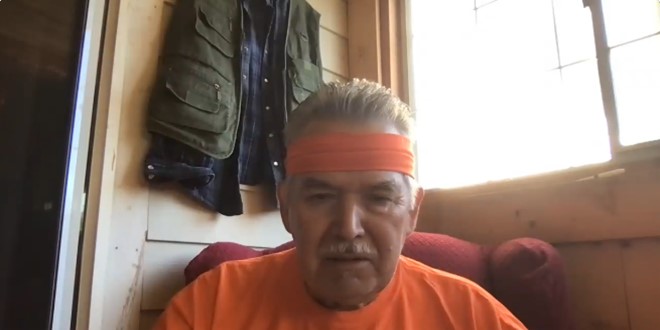
Elder J'SINTEN
John Elliot, Tsartlip First Nation
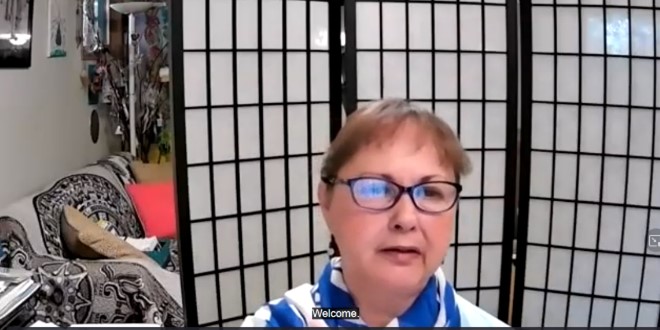
Elder Darlene McIntosh
Lheidli T'enneh First Nation
The First Nations Health Authority organized health and cultural supports to be offered by the Tsow-Tun Le Lum Society and the Indian Residential School Survivors Society throughout Our Gathering 2021, kexwkexwntsút chet, tə sq̓əq̓ip ct. At any time, participants were able to connect with a support member of their choice directly by phone, text or chat message within a Zoom breakout session.
Technical Support
The First Nation Public Service Secretariat (FNPSS) provided technical, logistical and promotional support to Our Gathering, kexwkexwntsút chet, tə sq̓əq̓ip ct 2021. Zoom was used as the video conferencing tool. A web-based document sharing space was used as a resource library so that participants had access to documents such as the agenda, the participant information package and the cultural supports information. A web-based survey tool was used to gather participants' evaluations of the event.
Session Summaries
The plenary and breakout session summaries that follow include a brief description, highlights of what was heard and any action items from sessions.
Greetings, Opening Prayer and Honour Song
Speaker

Elder J'SINTEN
John Elliot, Tsartlip First Nation
What Was Heard
The Gathering began with a moment of silence to recognize the locating of unmarked graves at Kamloops Indian Residential School and all the Indigenous children who never returned home, as well as the Survivors, families, and communities experiencing the ongoing tragedy of the legacy of the residential school system across Canada. Elder J'SINTEN, John Elliot from the Tsartlip First Nation followed with an opening prayer and an Honour Song.
Setting the Stage
Speaker
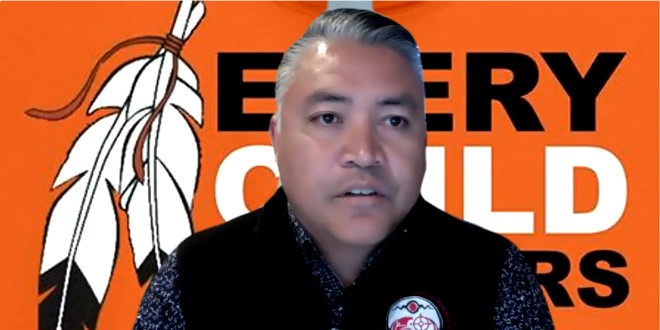
Regional Chief Terry Teegee
BC Assembly of First Nations
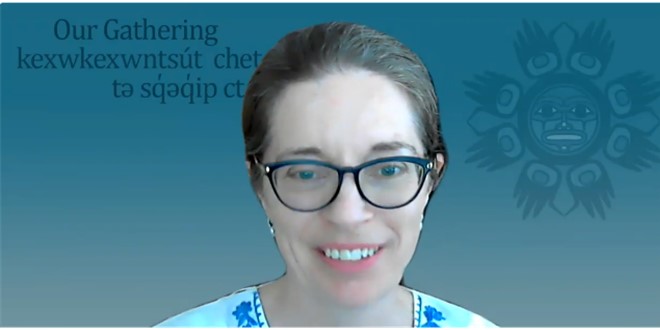
Angela Bate
Director General, Treaties and Aboriginal Government, Negotiations West Crown-Indigenous Relations and Northern Affairs Canada
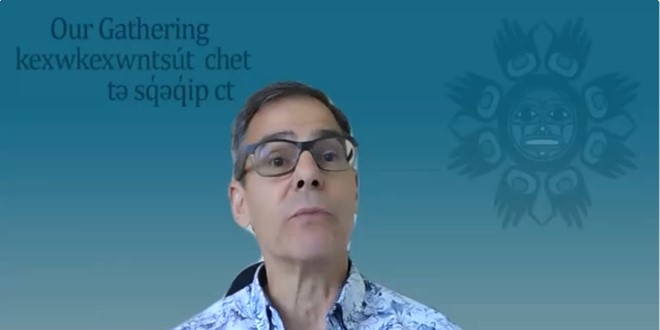
Bill Guerin
Acting Regional Director General, Indigenous Services Canada BC Region
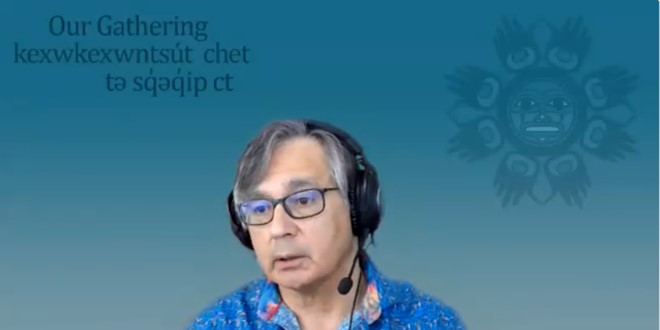
Harold Tarbell
Moderator
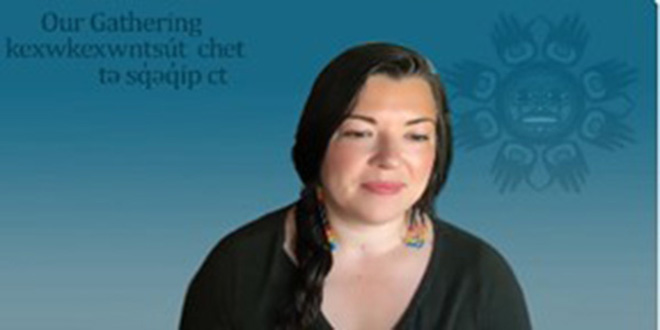
Jessie Hemphill
Moderator
What Was Heard
Regional Chief Terry Teegee on behalf of the First Nations Leadership Council welcomed everyone to Our Gathering, kexwkexwntsút chet, tə sq̓əq̓ip ct and thanked the hosts: First Nations Leadership Council, CIRNAC and ISC. As the event's focus was on band administrators, Regional Chief Teegee recognized "ongoing issues that really fall upon our administrators and Chief and Council to represent and advocate on behalf of our people". Regional Chief Teegee also acknowledged their tireless work during the pandemic to help keep their communities safe.
Angela Bate, Director General of Treaties and Aboriginal Government, Negotiations West, CIRNAC welcomed participants to Our Gathering, kexwkexwntsút chet, tə sq̓əq̓ip ct and noted that the Gathering is a valuable space to talk about important business, including the work towards healthier partnerships and collaborations.
Bill Guerin, Acting Regional Director General, ISC BC Region, extended a welcome to the participants and thanked the hosts, the FNPSS as logistics partners, and Harold Tarbell and Jessie Hemphill for moderating the event. During the welcome, Bill Guerin also outlined the focus of Our Gathering, kexwkexwntsút chet, tə sq̓əq̓ip ct, noting the primary focus on band administration and governance, and how ISC can work better together with First Nations and band administrators. Bill Guerin concluded by saying, "… our time together really is a wonderful opportunity to listen, learn and be able to share our experiences with one another".
"We understand it's been a really challenging year and we appreciate and support the tremendous work that's happened in communities, keeping your communities safe during the pandemic. It hasn't gone unnoticed that this work is on top of everything else and that your day-to-day work continues." – Bill Guerin
Panel on 10-Year Grants
Session
Speaker
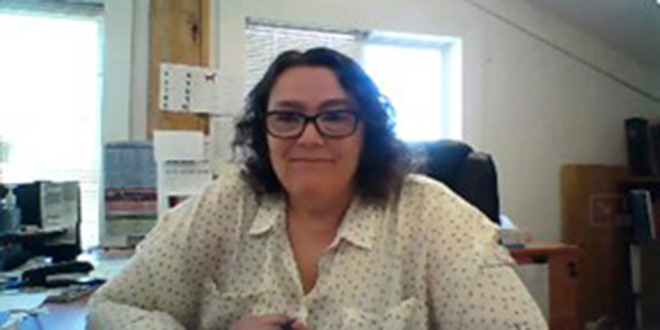
Dianne Bastedo
Chief Financial Officer, Upper Nicola Band
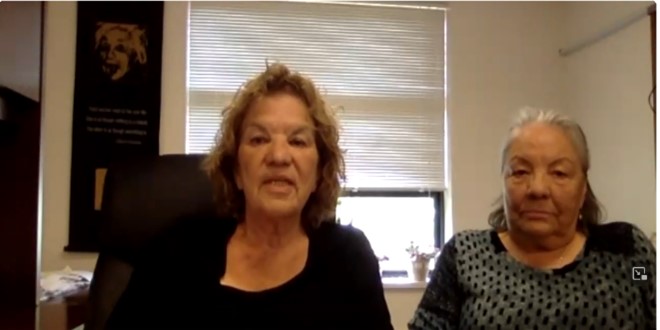
Barbara ("Babs") Stevens
Chief Administrative Officer,
Sue Wood
Finance Manager, Skidegate Band Council
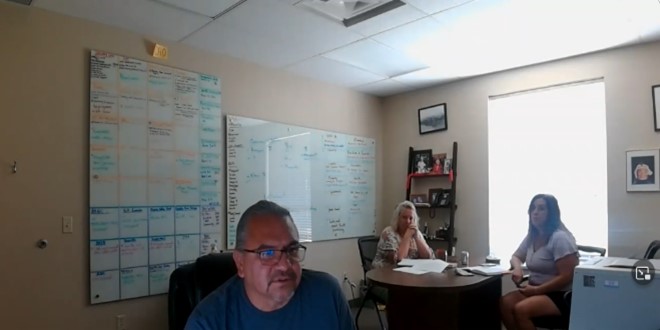
William Charlie
Chief Administrative Officer, Sts'ailes First Nation
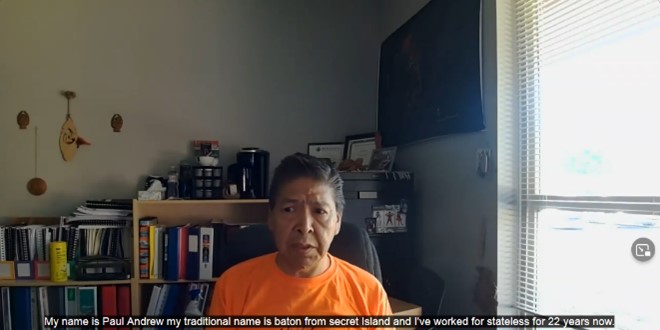
Paul Andrew
Strategic Initiatives Officer / Acting Finance Director, Sts'ailes First Nation
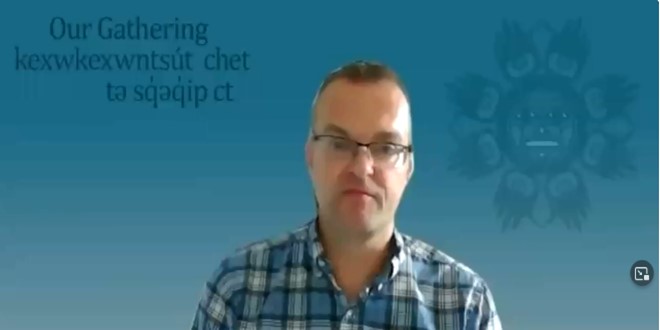
Anthony Hadfield
Manager, Funding Services Operations, Indigenous Services Canada BC Region
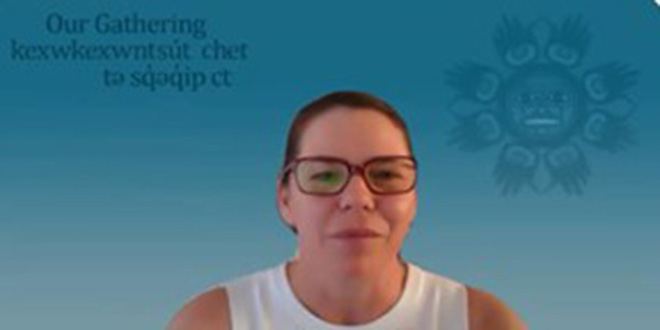
Jody Kaden
Director, Funding Services, Indigenous Services Canada BC Region
What Was Heard
First Nation administrators from the Upper Nicola Band, Skidegate Band Council and Sts'ailes First Nation, as well as two ISC representatives, provided updates on the implementation of the 10-Year Grant program. The band administrators provided both a high-level overview of the link between the grant and incremental steps towards self-determination, and examples of what was working and what challenges remained for the rollout of the 10-Year Grant in their communities.
What is working:
- More First Nation control and flexibility over short- and long-term planning and spending, with less ISC oversight, reporting and dictating what First Nations are able to do
- Certainty of having the grant money upfront to be able to manage the cash flow, and being able to retain unexpended (surplus) funds
- Ability to deliver culturally appropriate programs and services with accountability to members
- Reduced reporting burden (although exceptions were noted) and an annual report format that community members like
- Ability to invest the grant how the First Nation sees fit (long term, short term, etc.)
- Ease of providing the expression of interest and eligibility process with the First Nations Financial Management Board (FMB)
"We all should be wanting to make everything easier for our people." – Bab Stevens
What the challenges are:
- Uncertainty created by the "fine print" of the agreement and by messaging from ISC around claw backs and certain program funding
- Lack of direction from ISC in terms of operating the grant (e.g. the need to create new policies for spending and program management)
- Uncertainty around which programs were included or excluded at the outset and in the future (e.g. Acres and Professional Institutional Development funding)
- Lack of transparency and clarity around payment adjustments (monthly and in the future due to increased need)
- Difficulties created by ISC changes to the program that did not take into account the First Nation's budgeting schedule according to its financial laws
- Uncertainty about how the escalator would work, noting that the base funding level had not increased despite being in the third year of the program
- Continued oversight from ISC in areas meant to be governed by the First Nation (e.g. rental programs)
- Social Assistance funding disparities created by increased provincial funding
"We are kind of flying blind in some ways." – Dianne Bastedo
Panelist recommendations for Nations:
- Ask for more explanations up front before signing the 10-year Grant to know which numbers can be counted on and which numbers are subject to adjustments
- Prepare for future needs based on the current 10-year funding amounts by undertaking planning
- Get to know and work with ISC Funding Service Officers and the FMB
Panelist recommendations for ISC:
- Offer Professional and Institutional Development (P&ID) funding for rural development plans and transitional management strategies that lead to a Nation-to-Nation relationship with Canada
- Review systematic underfunding of First Nations in order to identify the gaps that were never funded with a goal to develop Nation-to-Nation relationships
- Set up a partnership program between First Nations already involved in the 10-year Grant program with those not yet involved
The session concluded with an ISC update on the escalator clause and the formal expressions of interest process.
Action Items
- ISC BC Region would like to hear from Tribal Councils and Affiliates that may be interested in applying for the grant and will reach out to them
- ISC BC Region is discussing with Headquarters the impact of the social assistance budgetary issues
- ISC is assessing the sufficiency question, a topic that was delayed due to the pandemic
- ISC will work to ensure information is clarified about what is, and is not, part of the grant
- ISC will consider how to implement the partnering program suggestion
"We need more transparency on the 10-year Grant. There are still a lot of unknowns, and as Bands move from year to year with the 10-year Grant, this is where we are figuring out what the real story is." – Session Participant evaluation comment
Nation-to-Nation Sharing on Capacity Development and the Journey to Self-determination
Session
Speaker
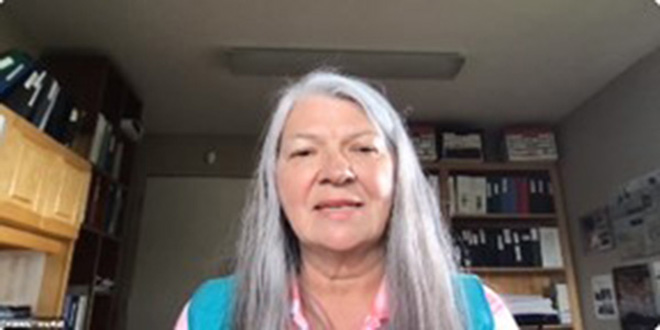
Colleen Hemphill
Chief Negotiator, Gwa'sala-'Nakwaxda'xw Nations
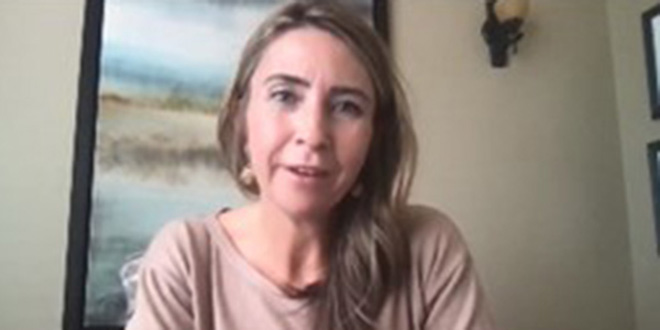
Trudy Warner
former Executive Director, Huu-ay-aht First Nations
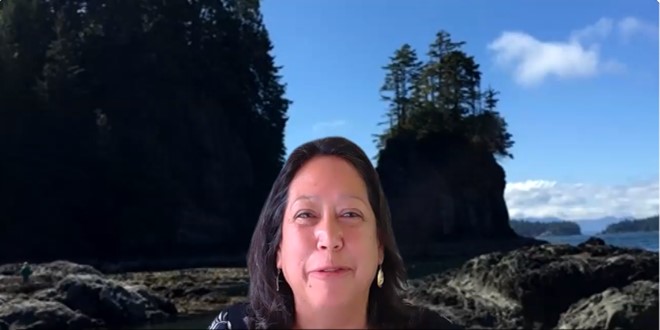
Angela Wesley
Commissioner, BC Treaty Commission, Moderator
What Was Heard
Colleen Hemphill from Gwa'sala-'Nakwaxda'xw Nations and Trudy Warner from the Huu-ay-aht First Nations shared lessons learned from their Nation's journeys toward greater self-determination. Both presentations focused on the capacities that were needed at different points in the journey to self-determination and nation building, and the importance of communication and engagement with community members on those journeys.
Colleen Hemphill talked about how the community chose to first strengthen the members through healing and then engaging the members in conversation around where they wanted to go. In addition, there were several key capacity enhancement initiatives that supported the community between the early 1990s to present day, including the following:
- Elders, the Chief, leaders and community members took part in capacity building training programs
- Local schools were built
- The community entered the treaty process with a focus on self-determination, regaining and completing cultural activities, and education, land use and economic development plans
- The Chief and Council began acknowledging the need to strengthen governance through the recognition of their hereditary systems and traditional governance
- The band administration strengthened its capacity
- The community undertook comprehensive community planning, which brought members together regularly
- Construction of a Big House was planned to replace the original Big House that was destroyed as the community was forced to leave their traditional lands, and a carving shed was built
- Language revitalisation, traditional medicines and food security programs were started along with strong efforts in child and family legislation planning
"I give emphasis to the Big House, because its growth is definitely parallel to the resurgence that is happening in our community." – Colleen Hemphill
Colleen Hemphill concluded by describing the current focus on gaining more control over families and children, on the infrastructure and services needed to return to the homelands, on artifact repatriation and on fisheries and forestry. Furthermore, it was noted they were moving towards self-determination with a blended governance structure to implement plans together with the Hereditary Chiefs, Matriarchs and community members.
Trudy Warner discussed the lessons learned about capacity building working over many years for the Huu-ay-aht First Nations, and through the treaty process, and how rebuilding their government requires many steps along the way. Key messages included the need to engage members in the rebuilding process by helping everyone find a role and by creating a shared understanding as a Nation of its future, and of each member's role in that future.
The conversation was followed by speaking to the "massive" change for the community of transitioning from the Indian Act to a new governance regime and how administrators could manage change by having discussions with the community about the new governance model and what everyone's role in this new regime looks like.
In terms of capacity enhancement, Trudy Warner spoke about training and recruiting, and learnings around the need to focus on key areas of governance functions and supports. This included policy development and interpretation, financial management, taxation, as well as considering the community's priority areas that can benefit from capacity enhancement. In addition, the importance was noted of benefiting from traditional knowledge holders wherever possible as there is a role for everyone in the community and the importance for leaders to surround themselves with high calibre people so that leaders can focus on their jobs rather than having to "deep dive" into other jobs.
There was also discussion around the capacity to manage communications and messaging around the treaty process, and the benefit of aligning leadership (political and hereditary), administration, and community members to facilitate a common understanding of the treaty process. Trudy Warner suggested that possible additional capacity building supports could include:
- deeper work in land management and development preparedness
- taxation preparedness
- procedural development to support legislation and policy development
- recruitment issues for remote communities
- finding adequate funds to support treaty negotiations
In closing, Trudy Warner provided further lessons learned:
- merge the administrative and negotiations teams sooner rather than later in the negotiation process
- continue to engage with community members after treaty-related voting to avoid losing trust
- address issues that arise in the community as they surface rather than putting them off
"The mantra of capacity building and Nation building is plan, plan, plan, communicate, communicate, communicate." – Angela Wesley
How Can ISC Work Better With and Serve First Nations
Session
Speakers

Jessie Hemphill
Moderator
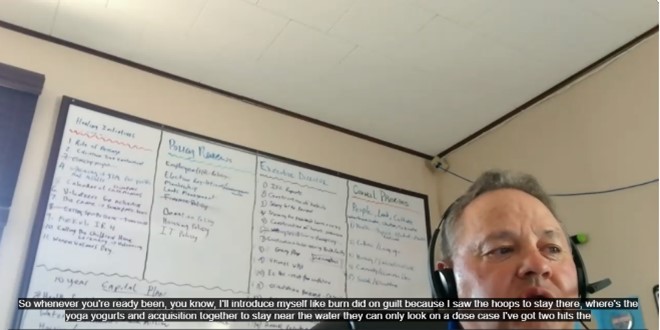
Vaughn Sunday
Executive Director, Adams Lake Indian Band
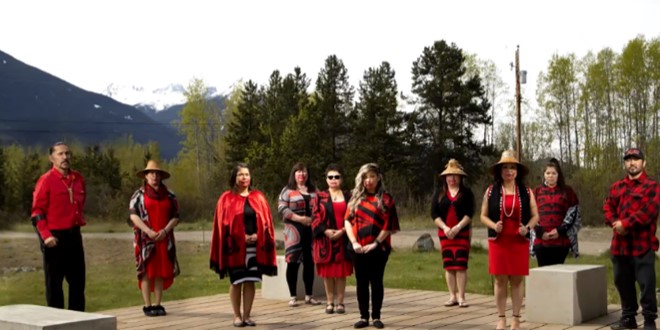
Sandra Wesley-Olson
Chief Operations Officer, Gitwangak Band
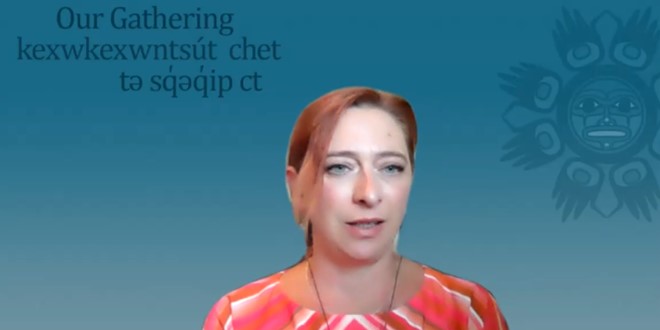
Trish Wuttunee
Funding Services Officer, Indigenous Services Canada BC Region
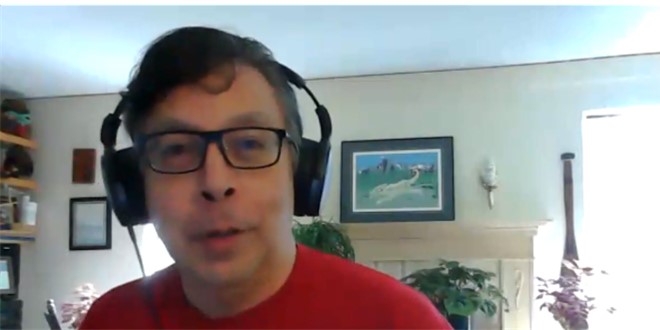
Vern Bob
Acting Manager, Funding Services Operations, Indigenous Services Canada BC Region
What Was Heard
The response to the COVID-19 pandemic highlighted the need for ISC officials to work and communicate with band administrators in an efficient, timely, clear and effective manner. This session elicited dialogue and feedback about what was working, what was not working and how ISC could improve and adjust its working relationship with band administrators to better meet their communities' needs. The themes that emerged through presentations and questions were around the need for ISC to understand communities, equity for on- and off-reserve members, access to funds and improved communications.
Sandra Wesley-Olson began the presentation by describing the horrific toll of Residential Schools, coupled with the current impact of the COVID-19 pandemic, and implored ISC to better understand the effects of Residential Schools on survivors and the subsequent generations in order to better meet their needs.
"ISC can't fix us … You guys can help us." – Sandra Wesley-Olson
Several online participants during the session, including Sandra Wesley-Olson noted there was no equity between COVID supports to off-reserve and on-reserve members as off-reserve members had many issues accessing support from friendship centres. As well, noted that the financial support provided to the First Nation to help off-reserve members was inadequate and unbalanced compared to on-reserve support.
"ISC should allow Bands themselves to help and support their off-reserve members." – Sandra Wesley-Olson
Vaughn Sunday focused on things that would be helpful in improving communications:
"… always found it was best to nurture a good relationship with ISC and keep the communication lines open." – Vaughn Sunday
The presentation included an example from Vaughn Sunday on infrastructure planning that was aided by ISC providing sample documents at the community's request, and how both going to Vancouver to meet with ISC representatives and ISC coming to the community were beneficial. Vaughn Sunday also discussed the community's actions to ensure equity and fairness in the funding and support provided to members living on and off-reserve. One example was how the community provided funds so that families living off-reserve could buy children a bicycle or a skateboard, noting sometimes it was the small things that had a big impact.
There were positive comments related to ISC services, such as the guidance, information and help with reporting provided by Funding Services Officers. Several action items were noted by the panelists and online participants through the chat function.
Action Items
- ISC needs to understand our communities' social issues and history better. ISC needs to treat each community individually as they are all different.
- ISC should distribute more of its operational money to communities.
- Facilitate training for how to run an Emergency Operations Centre at the community level.
- COVID top-ups on band salaries should be universal, not just for specific sectors or programs.
- Reporting is still too onerous under the 10-Year Grant.
- ISC should provide funding to update old buildings that do not allow adherence to COVID protocols. Communities should be able to use the Indigenous Community Support Fund to alter buildings to make them safer.
- There should be more funding "without attachments" for immediate needs.
- All information for new funding should be distributed along with the funding amendment. Funding Services and the different program areas at ISC should coordinate all information when sending out funding amendments.
- Bands need better communication about the different types of COVID funding available.
- Communities still want to see Funding Services Officers and ISC staff traveling to communities, especially for assistance with capital infrastructure projects.
- Communities need better internet and cellular service.
- Communities need clean drinking water.
"No one can work with and serve our communities unless they understand our history and how we got to where we are today." – Jessie Hemphill
Day One Summary
Harold Tarbell, Moderator, summarized Day One by identifying three key themes:
- There will always be a necessity for truth telling as communities work through the traumas that have taken place in our histories and our relationships and a necessity to do the healing work.
- ISC needs to know what it is seeking to achieve in supporting First Nations through grants, negotiations and relationship building so that communities can plan and adjust policies, etc. to ensure they are implementation ready and are able to forecast.
- One of the reasons for gatherings (such as Our Gathering) is so that we can "go to school" on each others' systems and on other First Nations' successes. One piece of advice evident from the day's presentations is to find a First Nations mentor who can help navigate the journey.
Greetings and Welcome to Day Two
Speaker

Elder Darlene McIntosh
Lheidli T'enneh First Nation

Harold Tarbell
Moderator

Jessie Hemphill
Moderator
What Was Heard
Day Two of the Gathering began with a moment of silence to recognize the locating of unmarked graves at Kamloops Indian Residential School and all the Indigenous children who never returned home, as well as the Survivors, families, and communities experiencing the ongoing tragedy of the legacy of the residential school system across Canada. Elder Darlene McIntosh from the Lheidli T'enneh First Nation followed with an opening prayer.
First Nations Public Service Secretariat (FNPSS) Information Session
Session
Speaker
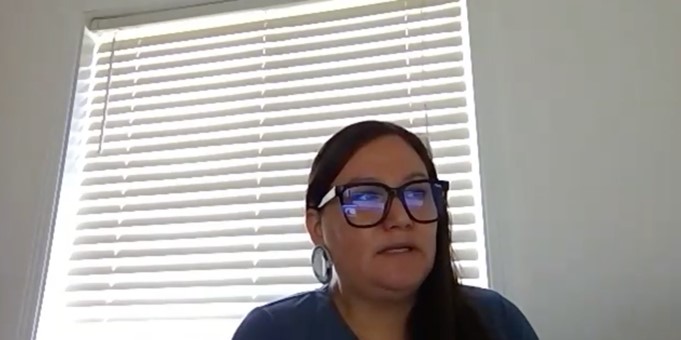
Tania Brewer
Chief Administrative Officer, Yaq̓it ʔa·knuqⱡi 'it First Nation
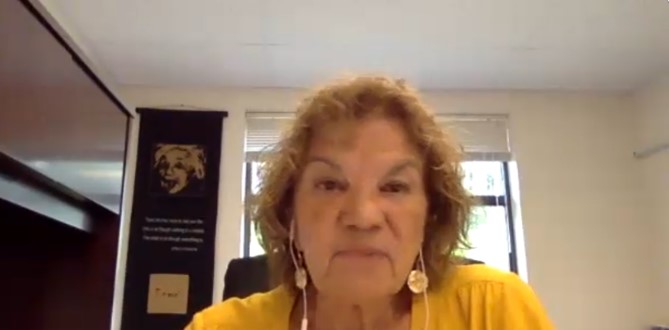
Barbara ("Babs") Stevens
Chief Administrative Officer, Skidegate Band Council
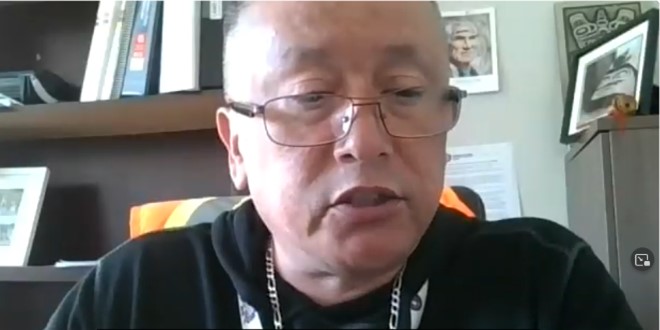
Councillor George Chaffee
Kwikwetlem First Nation
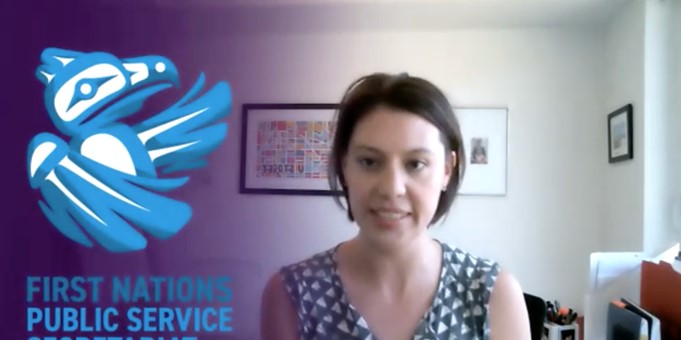
Jehan Casey
Director, First Nations Public Service Secretariat, Moderator
What Was Heard
Jehan Casey, Director of FNPSS introduced the organization's mandate, its key activities and programs. FNPSS highlighted the partnership with the Government of Canada, specifically the 17 federal departments (that have a presence in BC Region) that signed the Memorandum of Understanding (MOU) with FNPSS. Jehan Casey then discussed FNPSS's future plans to support First Nations in BC through various capacity enhancement initiatives.
Councillor George Chaffee from the Kwikwetlem First Nation introduced the First Nation and talked about the importance of investing in staff who understood the First Nation and the reasons for doing what they do. Examples of ways to invest in staff included having them talk to Elders, going on excursions on the land and providing First Nations governance training.
Councillor Chaffee highlighted the need to separate the roles of Chief and Council from the roles of administration and how administrators had to understand their role when dealing with community members. One tip shared by the Councillor was to have a contract with new staff that guaranteed they would work for the First Nation for a defined set of time so that both the staff member and the First Nation benefited from the training and support provided.
"I was very fortunate that I had Elders from other Nations who came in and helped my Nation … I understand how important it is to use our Community's heartbeat in order to change … our Elders have a very big heartbeat …" – Councillor George Chaffee
Tania Brewer, Chief Administrative Officer for the Yaq̓it ʔa·knuqⱡi 'it First Nation and Barbara Stevens, Chief Administrative Officer for Skidegate Band Council, are Band Administrator Advisory Committee (BAAC) members for the FNPSS.
Barbara Stevens said BAAC and FNPSS recognized that administrators were key to a well-functioning Council and Administration. A perspective was shared that band administrations, partnering with FNPSS, should be the "holding place for policies, procedures and job descriptions" for all band administrators to share and access. Barbara Stevens emphasized how FNPSS and BAAC members "come together, join our minds and talk about what's needed in our communities and for governance."
Tania Brewer highlighted the difficulties in finding band administrators who stayed and provided continuity and consistency within the administration. In addition, it was shared how FNPSS provides helpful resources, networking and information. Tania Brewer noted feeling empowered from the BAAC meetings and members, and would have liked to known about this initiative earlier when first starting in the position eight years prior. Furthermore, Tania Brewer reflected on the importance of having band administration staff acknowledge their First Nations, lands and peoples when they "come into the building" to work.
"We don't have to recreate the wheel. We can build on other First Nations' experiences and learn through those challenges to move our communities forward." – Tania Brewer
Recommendations:
- ISC needs to support First Nations in creating their own laws and governance systems and get rid of the Indian Act. They need to hear the voices of the communities.
- ISC needs to help First Nations in creating budgets that fit the community's needs and allow for more funding to pay staff the wages they deserve.
- ISC could reinstate the Community Lead Planning program (CLPP) that "puts energy and decision making back into the hands of the community".
Professional and Institutional Development (P&ID) Session
Session
Speaker
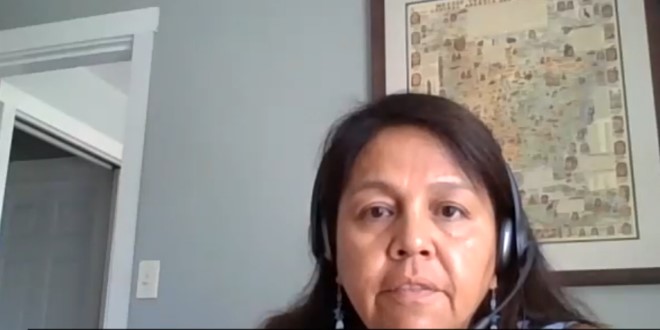
Collette Sunday
Band Administrator, Upper Nicola Band
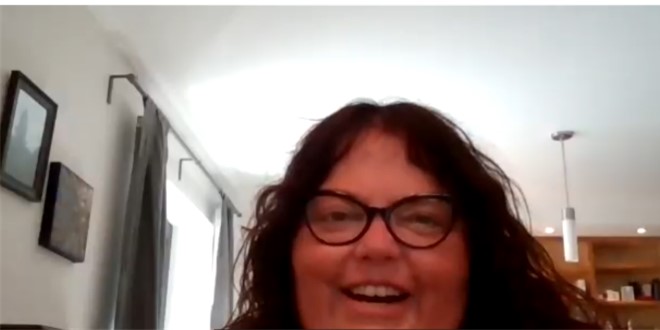
Norine Messer
Capacity Building Coordinator, Tla-o-qui-aht First Nation
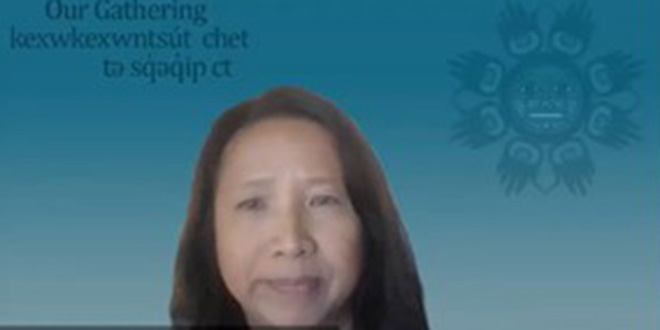
Carina Chow
Manager, Governance & Capacity Development, Indigenous Services Canada BC Region
What Was Heard
This session provided attendees with an update from ISC BC Region on the P&ID program, how projects for capacity enhancement are supported, commonly funded projects, and best practices for the future. This session provided an opportunity for two First Nations representatives to share their experiences with P&ID projects, highlighting the strategies they took to build their communities' capacity.
Carina Chow, Manager of Governance and Capacity Development with ISC, began the presentation by introducing the P&ID program, noting the types of projects supported (aimed at supporting the capacity of communities to perform core functions of governance), the eligibility requirements and the annual program cycle. In addition, the importance of describing which core functions of governance the project falls under and making the connection between the project and its activities, objectives and outcomes in the proposal were highlighted.. Carina Chow acknowledged that the P&ID budget is limited and recommended communities to work closely with their Funding Services Officer (FSO), Governance Officer and Community Initiatives Officer to identify priorities for support. The presentation concluded by identifying recent trends in P&ID funded projects, including IT projects, strategic plans, election code development, financial training and HR policy development.
Collette Sunday, Band Administrator for the Upper Nicola Band discussed the importance of P&ID funding, noting that "if we want to be supporting our First Nation leadership and, most importantly, our people to become self-governing, we are going to need a strong public service ... that can deliver not only programs and services but more so we can concentrate on our community's strategic priorities". A goal was to build a strong foundation for the band administration and with that in mind, Collette Sunday spoke to a Capacity Development Plan that illustrated what the community identified as capacity enhancement needs. The projects that came out of the Capacity Development Plan included a leadership orientation package, a review of community plans, provision of traditional governance workshops to the community and leaders, financial management training, several human resources initiatives and IT infrastructure upgrades. One suggestion Collette Sunday provided was to move forward in incremental steps by "… identify the first things you need and then, how do you build a case for your Council to determine that you need funding for these functions?" In addition, it was noted that the Capacity Development Planning tool, although time consuming, was helpful in identifying gaps in administrative capacity that needed filling. Collette Sunday concluded by identifying the necessity for a "one stop shop of information" (like the previous Knowledge Network) for all First Nations so that "the wheel doesn't keep getting reinvented".
"Let's work together, let's help one another and we'll all be better off because we've all been in each other's shoes." – Collette Sunday
Norine Messer, Capacity Building Coordinator with the Tla-o-qui-aht First Nation described how the community used P&ID funding to focus on determining long-term goals that supported self- determination and self governance, and how goal setting helped them access funding to develop training programs and create partnerships (including funding and training partners) to meet those goals. Examples of plans funded through P&ID included the Council's transition plan (as they had just moved to four-year Council terms), a long-term comprehensive community plan (including a five-year work plan for Council), an election code plan, a financial management plan, and a community safety plan. Norine Messer provided the example of the goal to revitalize culture and language, and how that led to the creation of a language program that was staffed by a language team delivering multiple classes. As well, it was shared that the P&ID funding allowed them to move forward on their governance goals and to support leadership, and the program was found to be flexible.
"Remember to focus on the strength and knowledge in the community – cultural strengths, team strengths, leadership strengths and community voices – that can provide guidance on building capacity."
Recommendations
- Create a knowledge network (or platform) for First Nations in BC where they can share policies, procedures, resources and training so that they can learn from and support each other and collectively build on all the ongoing work that is happening in communities.
- Organise follow-up sessions (like this session) where people could share best practices in a focused way.
- Schedule meetings with band administrators and ISC to discuss how ISC can better administer the P&ID program.
Informal Networking
Session
Jessie Hemphill, Moderator
ISC representatives from a variety of program areas were present to answer questions from participants. A wide range of issues were discussed:
- How to better support Kamloops and provide outreach to survivors
- How to decrease the amount of time to it takes to receive a status card
- How to better assist students with special needs
- How to provide more funding to children in care
- How to provide better education to students living on- and off-reserve
- How to improve communication and servicing around the 10-year Grant
- How to ensure police are receiving cross-cultural training
- How to be more efficient in providing funding
Indigenous Community Support Fund - Information Session
Session
Speaker

Vern Bob
Acting Manager, Funding Services Operations, Indigenous Services Canada BC Region
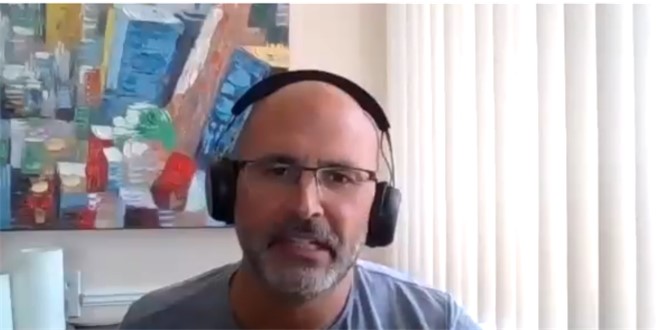
Luc Millaire
Manager, Resource Services, Indigenous Services Canada BC Region
What Was Heard
This session was held to answer questions on the Indigenous Community Support Fund (ICSF) - Needs-based Funding applications. Luc Millaire, Manager of Resource Services for ISC, provided an overview of and update on the ICSF. The presentation included information on activities that have been typically funded, funding amounts, the funding request process (with more details on the actual proposal), ISC's review of requests, how approved amounts were determined, the required reporting process, and the difference between on-reserve and off-reserve funding. It was also communicated that First Nation communities had the flexibility to determine how to use direct allocations and could support off-reserve members with that funding. ISC was also considering the use of direct allocations for off-service members and activities.
Issues that were discussed include the following:
- How expenditures could be funded retroactively (in this fiscal year and prior fiscal years) and the turnaround time for reimbursement
- How the needs-based proposal can be used to cover funding shortfalls
- On the proposal form under Partners, how First Nations have partnered or received other government funding
- How the funding can be applied to all those living on-reserve (even if they are not from the First Nation)
- How communities have had difficulties reaching off-reserve members about COVID-funding supports
- How the application and allocation process is different for First Nations organizations as opposed to First Nations
"There is more than one voice that indicated a large portion of funds like COVID has missed their target. There needs to be redress for a community in most need that has missed out in a pandemic." – Session Participant evaluation comment
"How do members ask their office/C&C questions on incoming funds in a way that ISC becomes aware of how many communities are missing funding pools?" – Session Participant evaluation comment
Event Wrap Up & Final Comments
Speaker
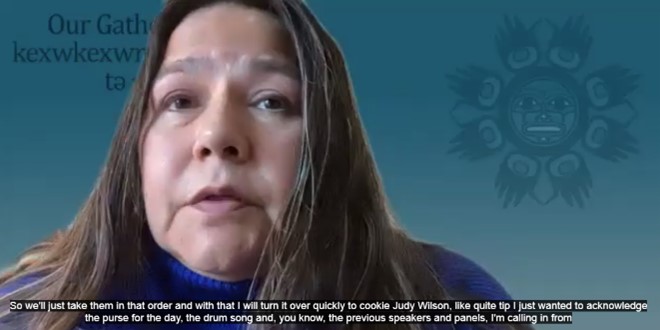
Kukpi7 Judy Wilson
Secretary-Treasurer, Union of BC Indian Chiefs

Angela Bate
Director General, Treaties and Aboriginal Government, Negotiations West Crown-Indigenous Relations and Northern Affairs Canada

Bill Guerin
Acting Regional Director General, Indigenous Services Canada BC Region
What Was Heard
Thanks was given to the Elders, speakers, moderators, participants, volunteers and FNPSS staff for organizing and attending this event.
Evaluation Highlights
Participant feedback for Our Gathering 2021, kexwkexwntsút chet, tə sq̓əq̓ip ct was collected throughout the two days through session-specific surveys, which were shared after each individual plenary or breakout. Highlights of this feedback are provided below.
General Feedback
Overall, feedback from survey respondents was positive, and included valuable comments and suggestions for each session.
General feedback for the sessions included the following suggestions:
- Give additional time for Question and Answer periods during all types of sessions (plenaries and breakout sessions)
- Develop stronger connections between panelists
- Additional information and resources, such as one-pagers, links or other documents, could be provided from ISC before or during sessions on topics such as available funding programs, the funding and decision-making processes and relevant policy and personnel changes to help inform participants
In response to participant feedback from the March 2021 session, the following recommendations were implemented as part of the June 2021 session:
- Question and Answer periods were extended, though additional time in future virtual or in-person Our Gathering, kexwkexwntsút chet, tə sq̓əq̓ip ct events is recommended
- Participants were provided with a Zoom networking room, where they could meet with one another in a casual setting
- The June sessions were shortened to two half-days to prevent participant Zoom fatigue
Conclusion and Next Steps
First Nations have consistently affirmed the importance of communities sharing their successes and challenges as well as the desire to hear from all members of the community, including Elders and youth. The agenda of future Our Gathering, kexwkexwntsút chet, tə sq̓əq̓ip ct events will continue to incorporate suggestions and recommendations that respond and are relevant to the needs of First Nations communities.
If you have suggestions that allow us to continue with the dialogue, engagement and networking of Our Gathering, kexwkexwntsút chet, tə sq̓əq̓ip ct events, you can provide those by email to ourgathering@sac-isc.gc.ca.
Appendix A: Delegate Information Package and Agenda
The June 23 and 24 Our Gathering Delegate Information Package and Agenda were available for all participants via the FNPSS website.